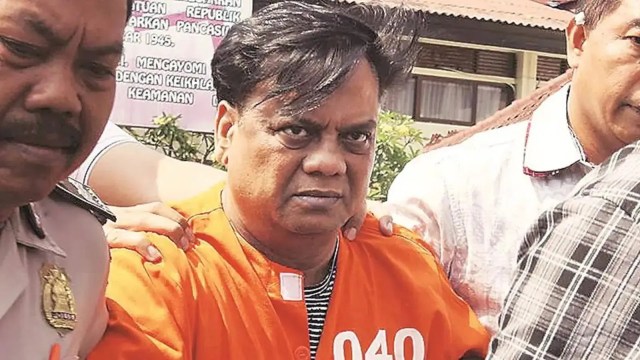 Rajan was deported to India in 2005 and is currently lodged in Tihar jail in New Delhi. (File Photo)
Rajan was deported to India in 2005 and is currently lodged in Tihar jail in New Delhi. (File Photo)
IN A 20-year-old case of alleged concealment of arms among drums of grease at the Jawaharlal Nehru Port Trust (JNPT), a special court rejected the bail plea of gangster Chhota Rajan, calling it a ‘serious offence’. Rajan was deported to India in 2005 and is currently lodged in Tihar jail in New Delhi.
Rajan sought bail in the case stating that he has spent 10 years in jail as an undertrial and the trial is yet to conclude. After his deportation, all the cases pending against him were transferred for a probe to the CBI and a special court has been designated for trial in these cases.
This particular case dates back to May 21, 2005, when one Mukund Patel was arrested for possessing a loaded revolver near Kandivali railway station. His interrogation revealed that Bharat Nepali, a henchman of gangster Chhota Rajan, has imported a huge quantity of firearms and ammunition concealed in one drum, hidden among 27 drums of grease. He also led the police to the drum kept at a logistic park in the JNPT area. The container had 34 revolvers, three pistols, one silencer and 1,283 live cartridges concealed.
Police invoked sections of the Maharashtra Control of Organised Crime Act. Rajan was named as an absconding accused in the case as the leader of an organised crime syndicate, called the Chhota Rajan gang.
Rajan sought bail stating that there is no evidence against him and he has been in judicial custody since 2015. Special public prosecutor Pradip Gharat submitted that there is evidence, including an intercepted conversation, and that the case is nearing conclusion. The court said that Rajan has been punished for offences ranging from life imprisonment to two years. Rajan was sentenced to life imprisonment in 2018 for the murder of journalist J Dey in 2011.
“The present matter is of a serious nature. Prosecution has already examined a total 45 witnesses…all the important witnesses have been examined by the prosecution. Now, there may be few witnesses who remain to be examined…and thereby, the trial may be completed within a few months,” special judge A M Patil said in the order passed on May 28.

